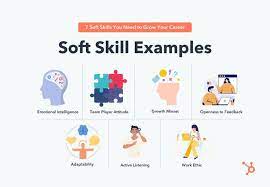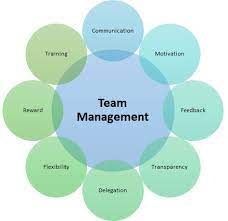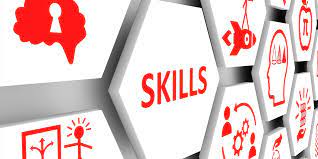Consultancy Services: Unlocking the Potential for Business Success
In today’s rapidly changing business landscape, companies face numerous challenges that require expert guidance and strategic thinking. This is where consultancy services play a crucial role, offering businesses the opportunity to tap into external expertise and unlock their full potential for success.
Consultancy services encompass a wide range of disciplines, including management, finance, marketing, human resources, technology, and more. These services are provided by experienced professionals who bring in-depth knowledge and a fresh perspective to help businesses navigate complex issues and make informed decisions.
One of the key benefits of consultancy services is the objective viewpoint they offer. Consultants bring an unbiased approach to problem-solving, as they are not directly involved in the day-to-day operations of the business. This allows them to identify blind spots, uncover hidden opportunities, and provide valuable insights that may have been overlooked internally.
Furthermore, consultants possess a wealth of industry experience and best practices gained from working with diverse clients across various sectors. This enables them to bring a broad perspective to the table and offer innovative solutions tailored to meet specific business needs. Whether it’s streamlining processes, implementing new technologies, or developing effective strategies for growth, consultants bring expertise that can drive tangible results.
Another advantage of consultancy services is their ability to provide specialized knowledge in areas where businesses may lack internal capabilities. For instance, small or medium-sized enterprises (SMEs) often face resource constraints and may not have dedicated teams for certain functions like marketing or IT. By engaging consultants with expertise in these areas, businesses can access high-quality advice and execution without the need for long-term commitments or additional overhead costs.
Moreover, consultancy services can be particularly beneficial during times of change or crisis. Whether it’s navigating a merger or acquisition process, managing organizational restructuring or overcoming financial challenges, consultants can provide guidance and support to ensure smooth transitions and minimize disruption.
Engaging consultancy services also offers businesses flexibility in terms of time and resources. Companies can choose to work with consultants on a project basis, allowing them to access specific expertise for a defined period without the need for permanent hires. This flexibility enables businesses to adapt quickly to market dynamics and seize opportunities as they arise.
However, it is important to note that successful consultancy engagements require effective collaboration and open communication between the consultant and the client. A strong partnership built on trust, transparency, and shared goals is essential for achieving optimal results.
In conclusion, consultancy services have become an indispensable resource for businesses seeking to thrive in today’s competitive environment. By leveraging external expertise, companies can gain fresh insights, overcome challenges, and unlock their full potential. Whether it’s strategic planning, operational improvements, or specialized knowledge in a particular area, consultancy services offer valuable support that can make a significant difference in driving business success.
Advantages of Consultancy Services: Expertise, Objectivity, Cost Savings, Flexibility, Fresh Ideas, and Increased Productivity
- Expertise
- Objectivity
- Cost savings
- Flexibility
- Fresh ideas
- Increased productivity
Drawbacks of Consultancy Services: A Comprehensive Analysis of High Costs, Lack of Control, Limited Knowledge, Conflict of Interest, Long-Term Dependency, and Communication Issues
- High cost – Consultancy services can be expensive and may not provide value for money.
- Lack of control – Clients may have less control over the project than if they were managing it themselves.
- Limited knowledge – Consultants may not have a deep understanding of the client’s business or industry, which could limit their effectiveness.
- Conflict of interest – A consultant’s primary focus is to make money, so there is always the potential for a conflict between their interests and those of the client.
- Long-term dependency – If a consultant is successful in helping to solve a problem, clients may become overly reliant on them and fail to develop their own internal skills and capabilities in the process.
- Communication issues – Poor communication between consultants and clients can lead to misunderstandings or misaligned expectations which can affect the outcome of projects negatively
Expertise
Expertise: Unlocking Business Potential through Consultancy Services
One of the key advantages of consultancy services is the expertise that consultants bring to the table. These professionals have a wealth of knowledge and experience in their respective fields, allowing businesses to tap into their expertise without the need to hire full-time staff.
In today’s fast-paced business environment, staying competitive requires staying up-to-date with industry trends, best practices, and emerging technologies. However, it can be challenging for businesses to keep pace with these rapid changes while also focusing on their core operations.
This is where consultants shine. They are specialists in their fields who have dedicated years to mastering their craft. They possess deep insights and a comprehensive understanding of industry dynamics, enabling them to provide valuable guidance and recommendations tailored to your specific business needs.
By engaging consultants, businesses gain access to a diverse range of skills and knowledge that may not be readily available internally. Whether it’s strategic planning, financial analysis, marketing strategies, or IT solutions, consultants bring a fresh perspective and innovative ideas that can drive growth and success.
Moreover, hiring full-time staff with the required level of expertise can be costly and time-consuming. It involves recruitment processes, onboarding procedures, training programs, and ongoing management responsibilities. This can divert valuable resources away from core business activities.
With consultancy services, businesses can avoid these challenges. Consultants are readily available with the necessary expertise to address specific issues or projects. They bring an external viewpoint that can challenge existing assumptions and identify areas for improvement.
Additionally, consultants often work across various industries and sectors. This exposure allows them to draw upon diverse experiences and apply best practices from different contexts. It brings a level of adaptability that may not be present within an internal team focused solely on one industry.
Furthermore, consultants offer flexibility in terms of engagement duration. Businesses can engage them for short-term projects or longer-term assignments based on their needs. This flexibility allows companies to scale up or down their consultancy support as required, providing cost-effective solutions without the burden of long-term commitments.
In conclusion, the expertise that consultants bring to the table is a significant advantage for businesses. It allows companies to access specialist knowledge, industry insights, and innovative ideas without the need to hire full-time staff. By leveraging consultancy services, businesses can tap into a vast pool of expertise and experience, unlocking their potential for growth and success in today’s ever-changing business landscape.
Objectivity
Objectivity: The Invaluable Perspective of Consultants in Decision-Making
When it comes to making critical decisions within an organization, objectivity is key. It ensures that choices are based on rational analysis rather than personal biases or internal politics. This is where consultancy services truly shine, offering businesses the invaluable advantage of an objective perspective.
Consultants bring a fresh set of eyes to the table, unburdened by internal dynamics and preconceived notions. They have the ability to view issues from an outsider’s standpoint, free from any emotional attachments or vested interests. This objectivity allows them to provide unbiased insights and recommendations that can be vital in guiding important decisions.
By analysing data, conducting thorough research, and applying their expertise, consultants can help businesses see the bigger picture. They are skilled at identifying underlying patterns, trends, and potential risks that may not be immediately apparent to those immersed in the day-to-day operations. This broader perspective enables organizations to make more informed choices that align with their long-term goals.
Moreover, consultants possess a wealth of industry knowledge and best practices gained from working with diverse clients across various sectors. This allows them to bring valuable benchmarking information and external insights into the decision-making process. By comparing a company’s practices against industry standards and successful case studies, consultants can highlight areas for improvement or opportunities for growth.
The objectivity of consultants also plays a crucial role in facilitating difficult conversations within organizations. Sometimes, internal conflicts or sensitive issues can cloud decision-making processes. Consultants act as neutral facilitators who can objectively assess different viewpoints and help find common ground. Their ability to ask probing questions and challenge assumptions encourages open dialogue and fosters collaborative problem-solving.
Furthermore, consultants provide an element of accountability in decision-making processes. As external experts invested in delivering results, they offer an unbiased evaluation of options and their potential outcomes. This accountability ensures that decisions are thoroughly evaluated based on facts and analysis rather than personal preferences or office politics.
The objectivity of consultants can be particularly beneficial during times of change or crisis. When organizations face significant challenges or need to navigate complex transitions, emotions can run high, and decision-making can become clouded. Consultants bring a calm and objective perspective, guiding businesses through these critical periods with clarity and focus.
In conclusion, the objectivity that consultants bring to the table is an invaluable asset for businesses when making important decisions. Their ability to provide an unbiased viewpoint, offer external insights, facilitate difficult conversations, and ensure accountability helps organizations navigate complexities and make sound choices. By leveraging the objectivity of consultants, companies can enhance their decision-making processes and set themselves up for long-term success.
Cost savings
Cost savings: The Smart Approach to Business Growth
In an era where businesses strive for efficiency and cost-effectiveness, consultancy services have emerged as a strategic solution that offers significant cost savings. Engaging consultants is often a more economical choice compared to hiring additional staff or outsourcing services, as it allows businesses to pay only for the time spent on specific projects or tasks.
When faced with new challenges or opportunities, many companies consider expanding their workforce or outsourcing certain functions. However, these options can come with hefty price tags. Hiring new employees involves recruitment costs, onboarding expenses, salaries, benefits, and potential long-term commitments. On the other hand, outsourcing can also be costly due to service fees and ongoing contractual obligations.
This is where consultancy services shine. By engaging consultants on a project basis, businesses gain access to expert knowledge and skills without the burden of long-term financial commitments. Consultants are typically engaged for a specific duration or scope of work, allowing businesses to pay only for the time and expertise required.
Furthermore, when it comes to consultancy services, there are no hidden costs or overheads associated with full-time employees. Businesses do not need to worry about providing office space, equipment, training programs, or employee benefits. The consultancy fee covers all these aspects within the agreed-upon scope of work.
Moreover, consultants bring efficiency and productivity to the table. With their extensive experience and specialized knowledge in their respective fields, they can quickly assess business needs and develop effective strategies. This means that projects are executed efficiently and in a timely manner – saving both time and money.
Additionally, by engaging consultants instead of hiring additional staff or outsourcing services, businesses can tap into a wider pool of expertise without increasing their permanent headcount. This flexibility allows companies to access specialized skills when needed while maintaining lean operations during quieter periods.
It’s important to note that while cost savings are undoubtedly a significant advantage of consultancy services, it is crucial for businesses to carefully select reputable and experienced consultants. A thorough evaluation of their track record, industry expertise, and client testimonials can ensure that businesses receive high-quality services that deliver tangible results.
In conclusion, engaging consultants is a smart approach to achieving cost savings while driving business growth. By paying for specific projects or tasks rather than hiring additional staff or outsourcing services, businesses can access expert knowledge and skills without the burden of long-term financial commitments. This strategic use of consultancy services allows companies to optimize resources, increase efficiency, and ultimately achieve their goals in a cost-effective manner.
Flexibility
Flexibility: Unlocking Business Potential with Consultancy Services
In the fast-paced and ever-changing world of business, adaptability is key to success. This is where consultancy services shine, offering a valuable advantage through their flexibility. Consultants have the ability to work around your business needs, providing access to the skills and resources you require precisely when you need them most.
One of the primary benefits of consultancy services is the ability to tap into expertise on-demand. Unlike hiring permanent staff or building internal teams, consultants can be engaged for specific projects or periods, allowing you to scale up or down as required. This flexibility ensures that you have access to the right skills and knowledge precisely when they are needed, without incurring long-term commitments or unnecessary costs.
Whether it’s a short-term project requiring specialized expertise or a temporary surge in workload, consultants can step in seamlessly to support your business objectives. They bring with them a wealth of experience gained from working across diverse industries and clients, enabling them to quickly understand your unique challenges and provide tailored solutions.
By engaging consultants, businesses can also benefit from their external perspective and fresh insights. As impartial observers, consultants can identify areas for improvement or untapped opportunities that may have been overlooked internally due to familiarity or limited viewpoints. Their diverse experiences across different organizations bring a breadth of knowledge that can be leveraged to drive innovation and growth within your own business.
Furthermore, flexibility in consultancy services allows businesses to respond swiftly to market changes and seize emerging opportunities. Whether it’s adapting strategies, implementing new technologies, or addressing unforeseen challenges, consultants can provide agile support tailored specifically to your evolving needs.
Another advantage of flexible consultancy services is the ability to bring in specialized skills that may not be available internally. Consultants often possess niche expertise that complements existing capabilities within your organization. By harnessing their specific skills for targeted projects or initiatives, businesses can achieve greater efficiency and effectiveness without having to invest in extensive training or hiring.
It is important to note that successful collaboration between consultants and businesses relies on clear communication and a shared understanding of goals and expectations. By establishing open lines of communication, businesses can ensure that consultants are aligned with their vision, values, and objectives, thus maximizing the benefits of their flexible services.
In conclusion, flexibility is a significant pro of consultancy services. The ability to work flexibly around your business needs allows you to access the skills and resources required at critical moments. Whether it’s expertise for short-term projects or adapting to changing market dynamics, consultants provide the agility and knowledge necessary for unlocking your business’s full potential. Embracing the flexibility offered by consultancy services can be a game-changer in today’s dynamic business environment.
Fresh ideas
Fresh Ideas: Unleashing the Power of a Consultant’s Perspective
In the ever-evolving business world, staying ahead of the competition requires more than just following traditional approaches. It demands fresh ideas and innovative thinking that can give your organization a competitive edge. This is where consultancy services excel, offering a consultant’s unique perspective to identify new opportunities and innovative ways of working that can benefit your organization in the long term.
Consultants bring a fresh set of eyes to your business. They come with diverse industry experience and a wealth of knowledge gained from working with various clients across different sectors. This enables them to see things from a different angle and challenge existing assumptions or practices that may have become outdated or inefficient.
By tapping into this external expertise, consultants can help you uncover hidden opportunities that may have been overlooked internally. They bring a fresh perspective that allows them to identify gaps in the market, emerging trends, or untapped customer segments that could be leveraged for growth. These insights can open up new avenues for innovation and expansion, helping your organization stay ahead of the curve.
Moreover, consultants are not bound by internal biases or preconceived notions about how things should be done. They bring an objective viewpoint that encourages out-of-the-box thinking and encourages creativity within your organization. By challenging conventional wisdom and encouraging experimentation, consultants can help you break free from stagnant routines and embrace new approaches that drive success.
Consultants also possess extensive knowledge of best practices across industries. They have seen what works (and what doesn’t) in similar situations before. Drawing on this expertise, they can introduce proven strategies and methodologies that have been successful elsewhere but may be unfamiliar to your organization. This infusion of fresh ideas can spark innovation within your team and inspire them to explore new possibilities.
Furthermore, consultants are skilled at facilitating brainstorming sessions and workshops that encourage collaboration among team members. By bringing together individuals from different departments or levels within your organization, they create an environment that fosters the exchange of ideas and encourages cross-pollination of knowledge. This collaborative approach can lead to breakthrough insights and innovative solutions that may not have been possible otherwise.
In conclusion, the fresh ideas brought by consultants can be a game-changer for your organization. Their unique perspective, unbiased viewpoint, and diverse industry experience enable them to identify new opportunities and innovative ways of working that can drive long-term success. By embracing their expertise and encouraging a culture of innovation, your organization can stay ahead of the competition and thrive in today’s dynamic business landscape. So, open your doors to consultancy services and unlock the power of fresh ideas for your organization’s growth.
Increased productivity
Increased Productivity: Unlocking Efficiency and Better Results with Consultancy Services
In the fast-paced world of business, productivity is a key driver of success. Every company strives to maximize efficiency and achieve better results, but sometimes internal resources and expertise may fall short. This is where consultancy services step in, offering specialist support and advice that can significantly boost productivity within your business.
Consultants bring a wealth of industry knowledge and experience to the table. They have worked with diverse clients across various sectors, giving them valuable insights into best practices and effective strategies. By leveraging their expertise, consultants can identify bottlenecks, streamline processes, and introduce innovative solutions that drive efficiency.
One of the primary benefits of consultancy services is their ability to provide an objective viewpoint. Consultants are external professionals who are not directly involved in the day-to-day operations of your business. This detachment allows them to identify inefficiencies or areas for improvement that may have been overlooked internally due to familiarity or biases.
By conducting thorough assessments and analyses, consultants can pinpoint areas where productivity gains can be made. They may suggest process improvements, technology implementations, or organizational changes that optimize resource allocation and enhance workflow. Their recommendations are tailored specifically to your business needs, ensuring that the solutions proposed are practical and achievable.
Moreover, consultants bring fresh perspectives to problem-solving. Their exposure to different industries and clients enables them to think outside the box and offer innovative approaches. This creativity can lead to breakthroughs in productivity by introducing new ways of working or leveraging emerging technologies.
Another advantage of consultancy services is the focused attention they provide. Consultants dedicate their time solely to understanding your business challenges and finding solutions. They bring specialized knowledge in their respective fields which may not be available internally within your organization. This expertise allows them to swiftly identify areas for improvement and implement targeted strategies for increased productivity.
Engaging consultancy services also offers businesses flexibility in terms of resources. Instead of hiring additional permanent staff or burdening existing employees with additional responsibilities, consultants can provide the necessary support on a project basis. This allows you to access specialist advice and assistance without the long-term commitment.
Ultimately, increased productivity leads to better results. By optimizing processes, improving efficiency, and leveraging specialized expertise, consultancy services can help your business achieve its goals more effectively. Whether it’s reducing turnaround time, increasing output, or enhancing quality standards, the impact of improved productivity ripples across all aspects of your business.
In conclusion, consultancy services offer a valuable pro: increased productivity. By tapping into external expertise and support, businesses can unlock efficiency gains that lead to better results overall. Consultants bring fresh perspectives, specialized knowledge, and innovative solutions that drive productivity improvements tailored to your specific needs. With their guidance and advice, you can streamline operations, optimize resources, and achieve greater success in today’s competitive business landscape.
High cost – Consultancy services can be expensive and may not provide value for money.
High cost – A Consideration in Consultancy Services
While consultancy services offer numerous benefits to businesses, it is important to acknowledge that they can come with a significant price tag. The high cost of consultancy services is a con that businesses must carefully consider before engaging external expertise.
One of the primary reasons for the high cost is the expertise and experience that consultants bring to the table. Their specialized knowledge and industry insights are valuable assets that come at a premium. Consultants invest years in honing their skills and staying up-to-date with the latest trends and best practices. This level of expertise often commands higher fees.
Additionally, consultancy firms have their own operational costs to cover, including salaries for their consultants, ongoing training, research, marketing, and overhead expenses. These costs are factored into the fees charged by consultancy firms, making their services more expensive compared to hiring permanent employees or relying solely on internal resources.
Another factor contributing to the high cost is the time commitment required from consultants. They dedicate significant hours to understanding a business’s unique challenges, conducting research, developing strategies, implementing solutions, and providing ongoing support. This level of involvement demands higher compensation for their time and effort.
However, it is essential to note that while consultancy services may be costly upfront, they can deliver substantial long-term value if implemented effectively. The expertise and insights provided by consultants can help businesses avoid costly mistakes and drive tangible results that outweigh the initial investment.
To ensure value for money when engaging consultancy services, businesses should carefully evaluate their needs and objectives beforehand. Conducting thorough research on potential consultants or consulting firms is crucial to understand their track record and reputation in delivering successful outcomes.
Furthermore, businesses should establish clear expectations and goals from the outset when working with consultants. This includes defining project scope, deliverables, timelines, and performance metrics. By setting these parameters early on and maintaining open communication throughout the engagement process, businesses can maximize the value they receive from consultancy services.
It is also worth considering alternative options such as engaging consultants on a project basis rather than long-term contracts. This allows businesses to access specific expertise for a defined period, reducing costs compared to retaining consultants on an ongoing basis.
In conclusion, the high cost of consultancy services is indeed a con that businesses need to carefully evaluate. However, it is essential to weigh this against the potential value and expertise that consultants bring. By conducting thorough research, setting clear expectations, and maintaining effective communication, businesses can ensure that they receive value for money when engaging consultancy services.
Lack of control – Clients may have less control over the project than if they were managing it themselves.
Lack of Control: A Con to Consider in Consultancy Services
While consultancy services offer numerous benefits, it is important to acknowledge and address potential drawbacks as well. One such concern is the perceived lack of control that clients may experience when working with consultants, compared to managing projects internally.
When businesses hire consultants, they entrust them with specific tasks or projects, relying on their expertise and guidance. However, this delegation of responsibility can sometimes lead to a feeling of reduced control over the project’s direction and outcomes.
One aspect contributing to this perception is the inherent nature of consultancy services. Consultants bring external perspectives and insights that may challenge existing norms or processes within the client’s organization. This can result in changes being proposed that may not align with the client’s initial expectations or preconceived ideas.
Additionally, consultants often have their own methodologies and approaches that they apply based on their experience and expertise. While these methods are intended to deliver effective results, clients may feel less involved in decision-making processes or find it challenging to fully understand or influence the consultant’s actions.
Moreover, as consultants typically work on multiple projects simultaneously, their availability and focus may be divided. This can lead to concerns about responsiveness and timely progress updates from the client’s perspective. Clients may feel disconnected from day-to-day operations or updates related to their project due to limited direct involvement.
To mitigate these concerns, effective communication and collaboration between clients and consultants are crucial. Establishing clear expectations from the outset is essential for both parties. Clients should clearly communicate their desired level of involvement and define specific milestones or checkpoints for regular progress updates.
Furthermore, maintaining an open line of communication throughout the engagement allows clients to voice any concerns or questions they may have promptly. Regular meetings or check-ins can help bridge any perceived gaps in control by ensuring alignment between the consultant’s actions and the client’s objectives.
It is also important for clients to select consultants who prioritize transparency and collaboration. By choosing consultants who value the client’s input and actively involve them in decision-making processes, clients can feel more empowered and regain a sense of control over the project.
In conclusion, while the perceived lack of control can be seen as a con in consultancy services, it is important to recognize that effective communication and collaboration can help address this concern. By establishing clear expectations, maintaining open lines of communication, and selecting consultants who prioritize client involvement, businesses can mitigate any potential feelings of reduced control and ensure a successful partnership with their chosen consultants.
Limited knowledge – Consultants may not have a deep understanding of the client’s business or industry, which could limit their effectiveness.
Limited knowledge – A Potential Con of Consultancy Services
While consultancy services offer numerous benefits, it is important to acknowledge that there can be limitations as well. One potential drawback is the limited knowledge consultants may have about a client’s specific business or industry. This lack of deep understanding could potentially limit their effectiveness in providing tailored solutions.
Consultants are often hired for their expertise in a particular field or discipline, but they may not possess extensive knowledge about the intricacies and nuances of every industry. This can pose challenges when it comes to developing strategies or making recommendations that align perfectly with a client’s unique circumstances.
Without a thorough understanding of the client’s business model, target market, competitive landscape, and industry dynamics, consultants may struggle to provide insights that truly address the specific challenges faced by the client. They may rely on generic approaches or best practices that might not fully capture the complexities and subtleties of the client’s situation.
Moreover, consultants typically work on multiple projects simultaneously, which means they have limited time to immerse themselves deeply in each client’s business. This time constraint can further hinder their ability to gain comprehensive knowledge about a specific industry or company.
However, it is worth noting that this limitation can be mitigated through effective communication and collaboration between consultants and clients. Open dialogue, sharing of information, and active involvement from both parties can help bridge the gap in knowledge and ensure that consultants have a clearer understanding of the client’s business context.
Clients can also play an active role in educating consultants about their industry by providing relevant background materials, arranging meetings with key stakeholders, and facilitating site visits or job shadowing experiences. This collaborative approach allows consultants to gain deeper insights into the client’s operations and challenges, enhancing their ability to provide more tailored recommendations.
Furthermore, consultancy firms can address this limitation by assembling multi-disciplinary teams that combine general expertise with specialists who have in-depth knowledge of specific industries or sectors. By leveraging both broad knowledge and deep industry insights, consultants can offer more comprehensive and effective solutions to clients.
In summary, while limited knowledge about a client’s business or industry can be a potential con of consultancy services, it is not an insurmountable obstacle. Through effective communication, collaboration, and leveraging specialized expertise when needed, consultants can overcome this limitation and provide valuable insights and recommendations that align closely with the client’s unique circumstances.
Conflict of interest – A consultant’s primary focus is to make money, so there is always the potential for a conflict between their interests and those of the client.
Conflict of Interest in Consultancy Services: Navigating the Potential Pitfall
While consultancy services offer businesses valuable expertise and insights, it is important to acknowledge that there can be potential downsides. One such concern is the possibility of a conflict of interest arising between the consultant’s financial interests and those of the client.
It is true that consultants are primarily driven by profitability, as they operate as businesses themselves. This reality raises the question of whether their recommendations and advice are always solely focused on what is best for the client.
A conflict of interest can occur when a consultant’s financial incentives or affiliations influence their judgment or recommendations. For example, a consultant may have partnerships or affiliations with specific vendors, which could lead them to recommend those vendors regardless of whether they are truly the best fit for the client’s needs.
To mitigate this risk, it is crucial for businesses to engage in due diligence when selecting a consultancy service provider. Thoroughly researching potential consultants and their track record can help identify any potential conflicts and ensure alignment with the client’s objectives.
Transparency is key in addressing conflicts of interest. Establishing clear communication channels and open dialogue with consultants can help uncover any potential biases or conflicting interests early on. It is important for both parties to have an honest conversation about expectations, goals, and any existing relationships that may impact objectivity.
In addition, setting up proper contractual agreements can provide safeguards against conflicts of interest. Including clauses that require consultants to disclose any potential conflicts and recuse themselves from situations where they may have a vested interest helps maintain ethical standards and protect the client’s best interests.
Ultimately, managing conflicts of interest requires active engagement from both sides. Clients should actively participate in decision-making processes and challenge recommendations if they suspect bias or lack of objectivity. Consultants, on the other hand, must prioritize transparency and act ethically by putting their clients’ interests first.
While it is essential to acknowledge this con associated with consultancy services, it is equally important to recognize that not all consultants are driven solely by financial gain. Many reputable consultants prioritize building long-term relationships and delivering value to their clients, ensuring that conflicts of interest are effectively managed or avoided altogether.
In conclusion, while the potential for conflicts of interest exists in consultancy services, it should not overshadow the many benefits they offer. By conducting thorough research, fostering open communication, and setting clear expectations, businesses can navigate this potential pitfall and leverage the expertise of consultants to drive success while safeguarding their best interests.
Long-term dependency – If a consultant is successful in helping to solve a problem, clients may become overly reliant on them and fail to develop their own internal skills and capabilities in the process.
Long-term Dependency: A Potential Con of Consultancy Services
While consultancy services offer numerous benefits to businesses, it is important to consider potential drawbacks as well. One such concern is the possibility of long-term dependency on consultants, which can hinder a company’s ability to develop its own internal skills and capabilities.
When businesses engage consultants to solve a specific problem or address a particular challenge, they often rely heavily on their expertise and guidance. Consultants bring valuable insights and solutions that can yield immediate results, leading to client satisfaction. However, if clients become overly reliant on consultants for ongoing issues or decision-making processes, it can create a long-term dependency that may not be sustainable in the future.
One of the risks of long-term dependency is the lack of skill development within the client organization. If employees consistently defer to consultants for problem-solving or decision-making without actively participating or learning from the process, it can hinder their growth and prevent them from developing essential skills and expertise. This reliance on external expertise may limit the company’s ability to adapt and innovate independently in the long run.
Additionally, long-term dependency on consultants can lead to increased costs. Consultants typically charge fees for their services, which can accumulate over time if they are continuously engaged for ongoing support. This financial burden may become unsustainable for businesses in the long term, especially if they have not made efforts to build internal capabilities during their engagement with consultants.
To mitigate this con, it is important for businesses to strike a balance between leveraging external expertise and developing internal capabilities. Instead of solely relying on consultants for every challenge or decision, companies should actively involve their own employees in problem-solving processes. This allows them to learn from the consultant’s expertise while actively participating in finding solutions.
Furthermore, companies should prioritize knowledge transfer during consultancy engagements. This involves ensuring that consultants share their knowledge and best practices with internal teams so that employees are equipped with the skills necessary to address similar challenges in the future. By fostering a culture of learning and knowledge sharing, businesses can reduce long-term dependency and build internal capabilities.
In conclusion, while consultancy services offer valuable expertise and solutions, the potential long-term dependency on consultants is a valid concern. To mitigate this con, businesses should actively involve their employees in problem-solving processes and prioritize knowledge transfer during consultancy engagements. By striking a balance between external expertise and internal skill development, companies can ensure sustainable growth and independence in the long run.
Communication issues – Poor communication between consultants and clients can lead to misunderstandings or misaligned expectations which can affect the outcome of projects negatively
Communication issues – A Potential Con of Consultancy Services
While consultancy services offer numerous benefits to businesses, it is important to acknowledge that there can be challenges along the way. One potential con of consultancy services is poor communication between consultants and clients, which can have a negative impact on project outcomes.
Effective communication is essential for any successful collaboration, and consultancy engagements are no exception. When there is a lack of clear and open communication between consultants and clients, misunderstandings can arise, leading to misaligned expectations and ultimately affecting the overall success of the project.
One aspect that contributes to communication issues is the complexity of the subject matter. Consultants often deal with intricate business problems that require careful explanation and understanding. If consultants fail to communicate their ideas clearly or if clients struggle to grasp complex concepts, it can hinder progress and prevent both parties from being on the same page.
Additionally, consultants may use industry-specific jargon or technical terms that are unfamiliar to clients. This can create confusion and make it difficult for clients to fully comprehend the proposed solutions or strategies. It is crucial for consultants to bridge this gap by using plain language and ensuring that their recommendations are easily understandable by all stakeholders involved.
Another factor contributing to communication issues in consultancy services is inadequate feedback loops. Effective feedback allows both consultants and clients to stay informed about progress, address any concerns promptly, and make necessary adjustments along the way. Without regular feedback exchanges, assumptions may be made, leading to incorrect assumptions about client needs or preferences.
Furthermore, time constraints can also impact communication in consultancy projects. Consultants often work within tight deadlines, which may result in rushed discussions or limited opportunities for in-depth conversations with clients. This time pressure can hinder effective information exchange and prevent thorough understanding of client requirements.
To mitigate these potential communication challenges, proactive steps need to be taken by both consultants and clients. Consultants should prioritize clear and concise communication by using plain language, avoiding jargon whenever possible, and actively listening to clients’ concerns and feedback. They should also set realistic expectations and establish a communication plan that includes regular check-ins and updates.
On the client side, it is crucial to provide clear project briefs, articulate expectations, and actively engage in the communication process. Clients should voice any concerns or questions they have, provide timely feedback, and actively participate in discussions to ensure that their needs are properly understood by the consultants.
In conclusion, while consultancy services offer valuable expertise and guidance, poor communication can be a potential con that hampers project outcomes. By recognizing the importance of effective communication, both consultants and clients can work together to overcome this challenge. Clear and open lines of communication, active listening, and regular feedback exchanges are key to ensuring successful consultancy engagements that deliver the desired results for businesses.









